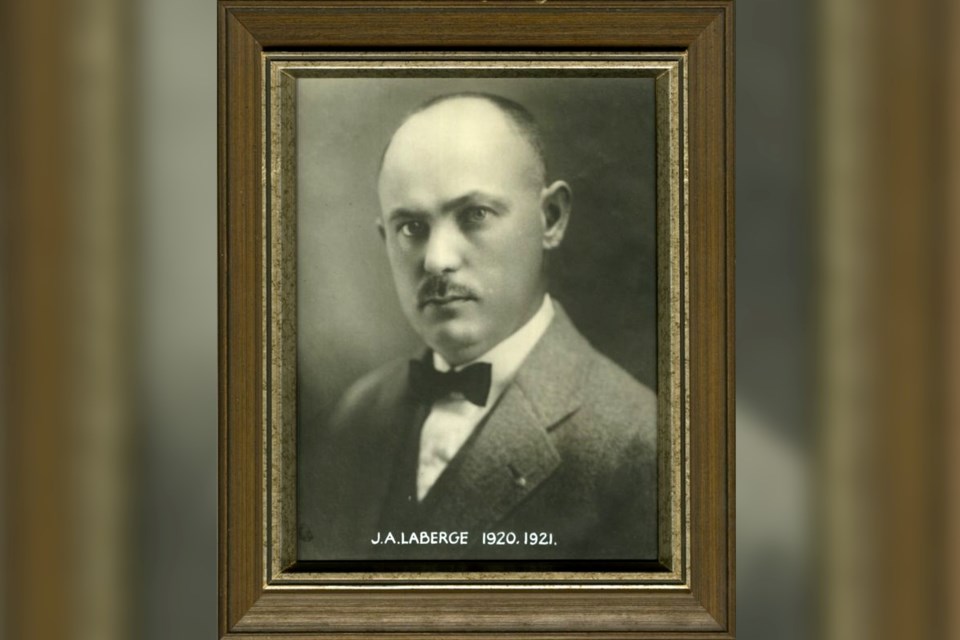At one time, a vast and endless forest covered Northeastern Ontario. In the 1860s, loggers began to show an interest in the forests around the rivers of the French, Whitefish, Spanish, and Wanapitei.
“When the area was opened up to lumbering in 1872, the larger red and white pines were cut and floated down rivers to Georgian Bay and Lake Huron, then rafted to sawmills in the northern United States, wrote Keith Winterhalder in Restoration and Recovery of an Industrialized City in 1995.
“Lumber from the Sudbury area almost certainly played an important role in rebuilding Chicago after that city's devastating fire of 1871."
Sudbury’s early growth and stability depended on the railway, but soon the lumber industry became the dominant employer, supplying railway ties and building materials for the new community and emerging mining industry.
By 1902, there were numerous lumber companies operating in the region employing about 11,000 men. Employment in forestry before The Depression exceeded that of mining.
Like many of the city’s successful business leaders, Joseph Alfred (Fred) Laberge was involved in the lumber business and played a large role in building the new community.
Laberge was born in Sudbury in 1893. Later, he would become the first Sudbury-born mayor of the city.
His father, Jean-Baptiste Laberge, opened the J.B. Laberge Lumber Company in 1897. When his son was old enough, he joined the family business.
The company built Silverman’s Department store, the original courthouse and the Nickel Range Hotel, Collège du Sacré-Cœur and St. Joseph’s Hospital.
In 1912, the company received a lucrative contract to build trestles, water tanks and stations for the Algoma Eastern Railway. By 1919, the company stopped contracting and specialized in providing building supplies.
At the age of 27, Laberge was elected mayor of Sudbury, serving two one-year terms in 1920 and 1921.
There had been tension in the community between Anglophones and Francophones during the First World War over the conscription issue. Laberge’s election as mayor was seen as a way to smooth over those divisions.
He was a founder of the Rotary Club, a president of the board of trade, chair of the Hydro Commission, a school board trustee and a member of the library board.
Laberge sought the Conservative nomination for Nipissing in the 1925 federal election, but withdrew his name following the controversy over an extortion attempt.
The Sept. 2, 1925 edition of The Globe reported, “Revelation of an alleged blackmail plot against J.A. Laberge, ex-mayor and prominent lumberman of Sudbury, and the choice of the Nickel Belt Town Conservatives in the recent nomination contest for the District of Nipissing has stirred local circles.
“Elzear Cousineau pleaded guilt this morning in police court to writing a threatening letter to Mr. Laberge with the intent of securing hush money. The police are considering enlarging the case by laying a conspiracy charge against others.
“According to police, Mr. Laberge received the letter on July 26. The missive was unsigned, demanded $2,000 in tens and twenties at a certain place. Mr Laberge turned the letter over to police some days ago and on their advice left a dummy package at the place named.
“Cousineau, police say, was calling for the package and was arrested. Cousineau, in his statement to police, is said to have implicated others.”
In the 1925 federal election, the Conservatives came within eight seats of forming a majority government. The Liberals with the conditional support of the many Farmer/Progressive MPs were invited to form a minority government, which fell within a year.
Another election was held the next year and Laberge was named the Conservative candidate for Nipissing. He was defeated. The Liberals returned to power in 1930.
Laberge was also a farmer in Azilda for 18 years. He had an experimental farm and raised cattle.
In 1956, Laberge sold a large part of his interests and retired to Montreal. He died in Montreal in 1964.
Vicki Gilhula is a freelance writer. Then & Now is made possible by our Community Leaders Program.
